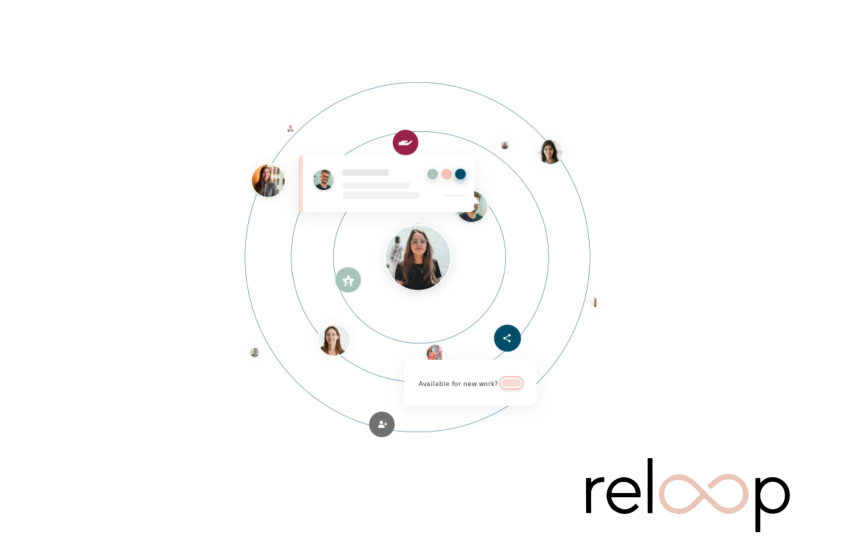Breaking the mould: The Problem with the Traditional CV and the Future of Finding Work
For as far back as anybody can remember, the résumé has been the epicentre of finding work and the overall hiring process. It has been so integral to the application process for so long that most of us never question its effectiveness. It is also clear to see why it is so popular among those in charge of recruitment – it just makes the process so easy.
A simple, quick summary, and a long list of work and education. And what must be better than 2 years of experience at a small firm? 3 years of experience at a brand named firm of course!
However, as the future world of work changes, the career journey of the average independent professional and freelancer is becoming harder and harder to represent on a piece of paper. The rise of freelancing and portfolio careers has shone a spotlight on the problematic linearity of the modern CV. The cracks are beginning to show in what was already a reductive system and newer, better alternatives are beginning to crop up as independent professionals look for innovative solutions.
So what are the problems with the traditional CV? How can freelancers and independent professionals prepare themselves for finding work and the client-hunt of the future?
Why the traditional CV needs to go
The problem with the CV essentially lies in its ineffectiveness at portraying a candidate in a holistic and helpful way. Many skills and attributes that might be important or even essential for a job are hard to assess when presented in a traditional résumé.
Certain soft skills that indicate whether an individual can work well in a team environment are near impossible to accurately assess. Attributes such as humility and self-awareness might be active casualties in the great résumé battle, with candidates who are better at exaggerating or showing off their achievements more likely to be short listed for an interview. It’s easy to write on a piece of paper about your incredible communication skills or your experience working as a leader, however the truth of this is hard for employers to glean.
Experience is not an accurate predictor of future success
Another pertinent issue with the traditional CV philosophy is that experience is not an accurate predictor of future workplace success. In 2019, Chad H. Van Iddekinge released a 5 year research project that examined over 80 different workplace studies taken from the last 60 years. Iddekinge found that “previous work experience generally is not a good indicator of how well employees perform in a new organisation.” The more this is analysed, the more this seems to make sense – especially when it comes to the career journey of independent professionals.
Although we’re hardwired into believing more experience results in higher quality performance, this ignores many factors that aren’t considered when expressing this experience on a CV. In an interview with Harvard Business Review, Iddekinge posits that the reason behind this disconnect is that simply listing experience doesn’t tell employers anything about the depth and breadth of experience.
Not only can some experience be less effective than others, but an experience could even be detrimental to future performance due to differences in work culture or method. Experience being indicative of future performance is the foundation upon which the CV system is built, take this away and it begins to crumble.
When it comes to a portfolio career, experienced freelancers and independent professionals have a wealth of experience that reads like a novel. Multiple projects and contracts, often overlapping, presented in a long laundry list, is confusing and doesn’t tell the whole story. With so many projects to show, the challenge becomes choosing whether to describe each individual project, which would be ideal, or alternatively, bunch projects together under one heading, which doesn’t show the detail and under represents the achievements.
Does the traditional CV disadvantage certain groups?
Perhaps the most unsung issue with the traditional résumé philosophy is the disadvantage it affords certain social groups. Experience gained with non-brand companies, and ‘unknown’ SME’s is not valued as highly as working with a brand name company, despite the fact that this experience could be equally high quality. Such a reductive view on experience clearly disadvantages lower socio-economic groups, advantaging those with more professional connections through family and educational institutions.
And then there are the career breaks and pivots. How can those be explained on a traditional CV?
Women who have taken career breaks in order to raise their children still struggle with explaining this gap without facing the negative stigma that accompanies it. This is despite 45% of the 2,000 women surveyed (Applied survey) saying that they gained new or transferable skills during their time off.
These problems are only being exacerbated as the world of work continues to change. More people than ever will have non-linear and portfolio careers, with freelancing and independent work becoming more and more prevalent. Such careers do not lend themselves as well to a mundane bulleted list of projects and clients. As stated above – with breaks and pivots, overlaps and concurrent work being difficult to effectively represent with the current CV blueprint – a shake up is needed.
So, the traditional CV is, at best, inaccurate and ineffective, and at worst, discriminatory and biased. Where do we go from here?
Let the job hunt begin: The future of finding work
Hiring based on the modern CV is clearly a practice destined for obsolescence. Thankfully many companies have recognised this and are leading the way with new methods of assessment. Larger reputable firms are increasingly using Pymetric AI based assessment to find trends in performance and skill sets, and trial projects are being used to accurately assess how one might actually perform in a certain role. As the workforce shifts towards more independent professionals, this mode of assessment may become more prevalent.
Professional networking platforms are becoming a go-to place for many firms, providing a more dynamic way to represent one’s career journey.
The philosophy of hiring is moving away from soulless lists of achievements and towards the assessment of skills and attributes, taking the candidate for who they truly are, not how good they are at presenting themselves on a piece of paper. Hopefully in the future we can all set fire to our résumés of the past and live comfortably with the belief that we are being assessed fairly.
– END –
Sources:
https://www.fastcompany.com/90862900/3-reasons-why-the-resume-is-dead
https://hbr.org/2021/02/research-how-companies-committed-to-diverse-hiring-still-fail
https://www.beapplied.com/post/career-gap
The Reloop profile provides a new way of presenting a portfolio career.
Find out more here: https://www.reloop.co/



